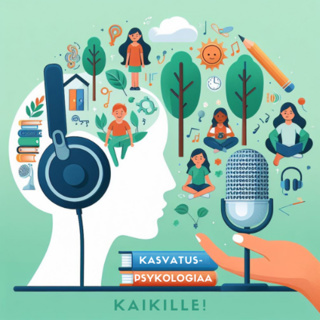
Space Policy Edition: The ahistorical era of commercial lunar exploration
The successful landing of IM-1 on the Moon ushered in a new era of commercial lunar exploration, one that has little to no historical precedent. The future, still highly uncertain, is rich with promise for what commercial payload deliveries can provide. There will be new and more frequent science opportunities, lower-cost access for national and non-state actors, and, potentially, a path to a sustainable presence on the lunar surface. Dr. Matt Shindell, science historian and curator of the planetary exploration collection at the Smithsonian Institution, joins the show to discuss the unique historical moment we find ourselves in, and how planetary exploration has evolved and could continue to evolve on and around the Moon. Discover more at: https://www.planetary.org/planetary-radio/ahistorical-era-of-clpsSee omnystudio.com/listener for privacy information.
1 Maalis 20241h 5min

The legacy of Red Rover Goes to Mars
Over two decades ago, an innovative partnership between The Planetary Society, NASA, and LEGO created the Red Rover Goes to Mars program. Today, we reflect on the program's remarkable achievements with our chief scientist, Bruce Betts. We're also joined by two extraordinary people whose lives were forever changed by their experiences as student astronauts in the program during their high school years. Courtney Dressing, an associate professor in the Department of Astronomy at the University of California, Berkeley, and Abigail Fraeman, the deputy project scientist for NASA's Curiosity Rover at the Jet Propulsion Laboratory, share their inspiring journeys through the program and beyond. Then Bruce Betts returns to share more of LEGO's involvement in space exploration and a new random space fact. Discover more at: https://www.planetary.org/planetary-radio/2024-red-rover-goes-to-marsSee omnystudio.com/listener for privacy information.
28 Helmi 202456min

OSIRIS-REx becomes APEX
After NASA's OSIRIS-REx spacecraft's successful sample retrieval from asteroid Bennu, it's onto its next adventure as OSIRIS-APEX, the Apophis Explorer. Scott Guzewich, deputy project scientist for APEX, joins Planetary Radio to discuss the next steps for the mission as we count down to asteroid Apophis’ flyby of Earth in 2029. Then Bruce Betts, The Planetary Society’s chief scientist, pops in for What's Up and a look at other multi-world missions. Discover more at: https://www.planetary.org/planetary-radio/2024-osiris-apex See omnystudio.com/listener for privacy information.
21 Helmi 202455min

The Space Race: Honoring the first African-American space explorers
This week on Planetary Radio, we take a peek behind the scenes at National Geographic's new documentary, “The Space Race,” which celebrates the triumphs and struggles of the first African-American space pioneers and astronauts. Co-directors Diego Hurtado de Mendoza and Lisa Cortés, space pioneer Ed Dwight, and astronaut Leland Melvin join us to discuss the film. But first, Casey Dreier, The Planetary Society's chief of space policy, and Jack Kiraly, our director of government relations, give an update on the U.S. budget gridlock that caused the recent layoff of hundreds of people at NASA's Jet Propulsion Laboratory. Twitch streamer Moohoodles joins the show later to talk about her upcoming stream with Planetary Radio, and we close out with What's Up with Bruce Betts and a new random space fact. Discover more at: https://www.planetary.org/planetary-radio/2024-space-raceSee omnystudio.com/listener for privacy information.
14 Helmi 20241h 3min

Exploring solar eclipses through time
This week on Planetary Radio, we delve into the evolution of humanity's relationship with one of our planet's most awe-inspiring phenomena: total solar eclipses. Ed Krupp, the director of Griffith Observatory in Los Angeles, will share insights from the fascinating field of archaeoastronomy. We'll explore how cultures throughout history have interpreted and imbued solar eclipses with meaning. We'll also introduce The Planetary Society's latest addition, Asa Stahl, our new science editor. Then Bruce Betts, The Planetary Society's chief scientist, shares a new random space fact and his experience with historic astronomical sites. Discover more at: https://www.planetary.org/planetary-radio/2024-solar-eclipses-through-time See omnystudio.com/listener for privacy information.
7 Helmi 202452min

Space Policy Edition: Space isn’t black — it’s grey
It’s a policy paper episode! Laura Delgado López joins the show to break down “Clearing the Fog: The Grey Zones of Space Governance” by Jessica West and Jordan Miller. Grey zones are harmful or disruptive space activities that fall short of provoking a military response — ideally. But the ambiguity, by its nature, could generate unplanned escalation and conflict. What are these grey zones, and why do they exist? What are their consequences to humanity, even for those in nations not actively pursuing spaceflight? And by what means can we reduce the uncertainty and, therefore the risk to space operations at Earth and beyond? Laura Delgado López has worked in space policy in the Washington, D.C., area for nearly 15 years and is currently a visiting fellow with the Americas Program at the Center for Strategic and International Studies (CSIS), where she researches and writes on international space cooperation in Latin America. She selected this episode’s paper, which can be accessed for free at the Centre for International Governance Innovation’s website.Discover more at: https://www.planetary.org/planetary-radio/grey-zones-in-space-governance See omnystudio.com/listener for privacy information.
2 Helmi 20241h 20min

The 20th landing anniversary of Spirit and Opportunity
January marks 20 years since NASA’s twin Mars rovers, Spirit and Opportunity, touched down on the surface of the red planet. Matt Golombek, project scientist for the Mars Exploration Rover Project, joins Planetary Radio to celebrate. But first, the countdown to the next great American total solar eclipse continues. Kate Howells, The Planetary Society’s public education specialist and Canadian space policy adviser, explains why this periodic alignment of our Earth, Moon, and Sun is more rare on the scale of the Universe than you might think. Stick around for What’s Up with Bruce Betts, our chief scientist, as we honor the Ingenuity Mars Helicopter and the Mars missions that made it possible. Discover more at: https://www.planetary.org/planetary-radio/2024-20th-anniversary-spirit-and-opportunitySee omnystudio.com/listener for privacy information.
31 Tammi 20241h 4min

Blazing a trail to the Moon
We're celebrating lunar missions and the space advocacy that helps make them happen this week on Planetary Radio. Casey Dreier and Jack Kiraly, chief of space policy and director of government relations at The Planetary Society, update you on our next Day of Action in Washington, D.C. Kate Howells, our public education specialist, shares the triumph and challenges of the Japanese space agency's SLIM lunar lander, as Japan becomes the fifth nation to make a successful soft landing on the Moon. We begin our coverage of the upcoming 2024 total solar eclipse in Mexico, the United States, and Canada on April 8th with Bethany Ehlmann, the president of our board of directors and the principal investigator of NASA's upcoming Lunar Trailblazer mission. She joins us for a mission update and a look at how eclipses affect spacecraft near the Earth and Moon. We'll top off this lunar celebration with Bruce Betts, our Chief Scientist and everyone's favorite master of random space facts, as he shares some history about an iconic Apollo image. Discover more at: https://www.planetary.org/planetary-radio/2024-blazing-a-trail-to-the-moon See omnystudio.com/listener for privacy information.
24 Tammi 202459min





















